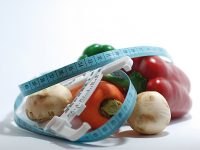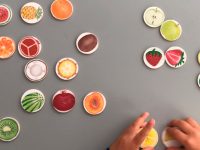
The current avalanche of messages about food and health threaten to annihilate good decision-making sense in such a daily and important matter. Who has not felt confused when reading, sometimes on the same day, contradictory news? That drinking a little alcohol is or is not good for your heart, that eating meat increases the risk of cancer, or that the risk is actually uncertain… Other informations tell us about the benefits of eating chocolate, broccoli, gluten free products, and other food with amazing properties, or the advantages of following a particular diet. The crossroads between food and health is an area in which myths, mistaken messages, surreptitious advertising, recommendations from gurus, and sensationalism thrive in the name of science. And all of these informational shortcomings are probably related.
We now have more information than ever about nutrition. But, at the same time, we have great difficulties to identify reliable information and, above all, to understand the limitations of science to answer so many of the questions that we make ourselves about how the food we eat and the food we avoid affects our health. The abundance of myths and misconceptions about food and health is, to a large extent, due to this ceremony of confusion. Thinking, for example, that drinking alcohol in moderation is better for health that not drinking it at all is a myth fed by partial information and prejudice, since research results indicate precisely the opposite is true, and there is no scientific grounds to drink alcohol for health reasons. Scientific evidence also indicates that some extended ideas such as, for example, the idea that artificial sweeteners are harmful to health, that antioxidant supplements prevent disease, and that energy drinks counteract the effects of alcohol, are probably false.
«The crossroads between food and health is an area in which myths thrive in the name of science»
In addition, there are many other beliefs that we can consider myths because they are not backed by scientific evidence, although compelling evidence against them does not exist. Simply, science is unable to make a statement at the moment, either because the issue has hardly been investigated or because the results are contradictory or are unreliable. Many of the questions we ask ourselves about diet are hardly accessible for science, or cannot be answered with sufficient certainty. Certainly, we all would like to know if being vegetarian or eating organic food would help us to prevent some diseases and have better health throughout our lives. But this is very difficult to find out, not to say almost impossible. Thinking otherwise is turning nutrition into a myth, perhaps the most important of all the myths about food and health.
To actually know that a vegetarian diet is healthier than a conventional one, we would have to do an experiment with thousands of newborn babies, divided randomly into two groups that would be fed either with a vegetarian diet or a conventional one throughout all their lives. Because this experiment is impossible, we can only resort to observational studies and consumption surveys. But, how can we be sure that those who follow a vegetarian diet do not also have other characteristics that influence their health and that survey responses reflect what the respondents have actually eaten? Observational studies and surveys often provide answers with a low degree of certainty. Learning about the possibilities and limitations of research in nutrition, as well as assessing the messages that we receive with a critical eye and a healthy scepticism is perhaps the best thing we can do to avoid complicating our lives with food pseudo-problems and to eat wisely.





